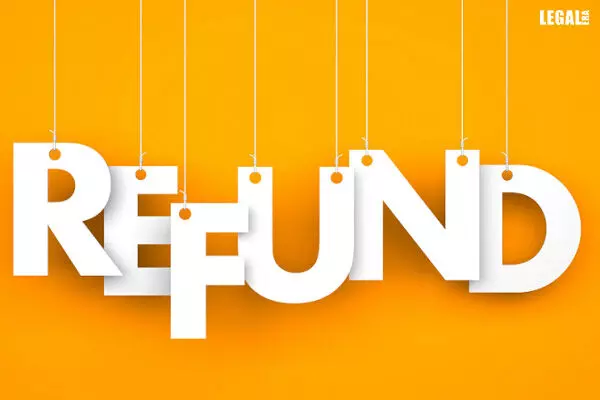- Home
- News
- Articles+
- Aerospace
- Agriculture
- Alternate Dispute Resolution
- Banking and Finance
- Bankruptcy
- Book Review
- Bribery & Corruption
- Commercial Litigation
- Competition Law
- Conference Reports
- Consumer Products
- Contract
- Corporate Governance
- Corporate Law
- Covid-19
- Cryptocurrency
- Cybersecurity
- Data Protection
- Defence
- Digital Economy
- E-commerce
- Employment Law
- Energy and Natural Resources
- Entertainment and Sports Law
- Environmental Law
- FDI
- Food and Beverage
- Health Care
- IBC Diaries
- Insurance Law
- Intellectual Property
- International Law
- Know the Law
- Labour Laws
- Litigation
- Litigation Funding
- Manufacturing
- Mergers & Acquisitions
- NFTs
- Privacy
- Private Equity
- Project Finance
- Real Estate
- Risk and Compliance
- Technology Media and Telecom
- Tributes
- Zoom In
- Take On Board
- In Focus
- Law & Policy and Regulation
- IP & Tech Era
- Viewpoint
- Arbitration & Mediation
- Tax
- Student Corner
- AI
- ESG
- Gaming
- Inclusion & Diversity
- Law Firms
- In-House
- Rankings
- E-Magazine
- Legal Era TV
- Events
- News
- Articles
- Aerospace
- Agriculture
- Alternate Dispute Resolution
- Banking and Finance
- Bankruptcy
- Book Review
- Bribery & Corruption
- Commercial Litigation
- Competition Law
- Conference Reports
- Consumer Products
- Contract
- Corporate Governance
- Corporate Law
- Covid-19
- Cryptocurrency
- Cybersecurity
- Data Protection
- Defence
- Digital Economy
- E-commerce
- Employment Law
- Energy and Natural Resources
- Entertainment and Sports Law
- Environmental Law
- FDI
- Food and Beverage
- Health Care
- IBC Diaries
- Insurance Law
- Intellectual Property
- International Law
- Know the Law
- Labour Laws
- Litigation
- Litigation Funding
- Manufacturing
- Mergers & Acquisitions
- NFTs
- Privacy
- Private Equity
- Project Finance
- Real Estate
- Risk and Compliance
- Technology Media and Telecom
- Tributes
- Zoom In
- Take On Board
- In Focus
- Law & Policy and Regulation
- IP & Tech Era
- Viewpoint
- Arbitration & Mediation
- Tax
- Student Corner
- AI
- ESG
- Gaming
- Inclusion & Diversity
- Law Firms
- In-House
- Rankings
- E-Magazine
- Legal Era TV
- Events
CESTAT: Refund Cannot be Denied to Any Person Who Has Borne the Incidence of Tax

CESTAT: Refund Cannot be Denied to Any Person Who Has Borne the Incidence of Tax
The Customs, Excise, and Service Tax Appellate Tribunal (CESTAT), Delhi, by its division member bench comprising of Justice Dilip Gupta (President) and Hemambika R. Priya (Technical Member) has held that a refund cannot be denied to any person who has borne the incidence of tax.
The appellant/assessee- M/s Quality Builders & Contractor submitted that they had constructed multi-storey buildings as per work orders given by the Rajasthan Housing Board, which is a taxable service under the category of ‘works contract service.’ The total amount received against construction during the period from 1 October, 2012 to 31 December, 2012 was Rs. 86,63,344 as per Form No. 16A and is inclusive of VAT of Rs. 1,29,970. The work involves both goods and services, as is evident from copies of work orders, is covered under work contract services, and is liable to 4.94% service tax.
The works contracts are covered under the reverse charge mechanism as per Notification No. 30/2012-ST dated 20 June, 2012, according to which the Rajasthan Housing Board was liable to deposit 50% of the tax payable on services.
The appellant was liable to deposit the remaining 50%. However, the appellant deposited the entire tax payable. The appellant applied for a refund and submitted a copy of the work order, Tax Deducted at Source (TDS) certificate, VAT-41, certificate of deduction of service tax by RHB, and a copy of the challan evidencing the deposit of tax.
The Commissioner (Appeals) upheld the rejection of the refund claim by the original adjudicating authority on the ground that the amount claimed as a refund is not substantiated. He held that the refund claim was hit by the clause of unjust enrichment.
The CESTAT observed, “as regards the contention that the refund is hit by unjust enrichment, we find that Rajasthan Housing Board has also deducted the service tax payable by them by reverse charge mechanism in the bills raised by the appellant. Therefore, it is the appellant who has borne the incidence of tax and refund cannot be denied to any person who has borne the incidence of tax. Therefore, there is no unjust enrichment in this case.”
Thus, the CESTAT set aside the order of the Commissioner (Appeals) and noted that the appellants have not provided any other services during the refund period, as is evident from Form 16A/26AS, which reflects only three entries for the quarter ending 31 December, 2012.



